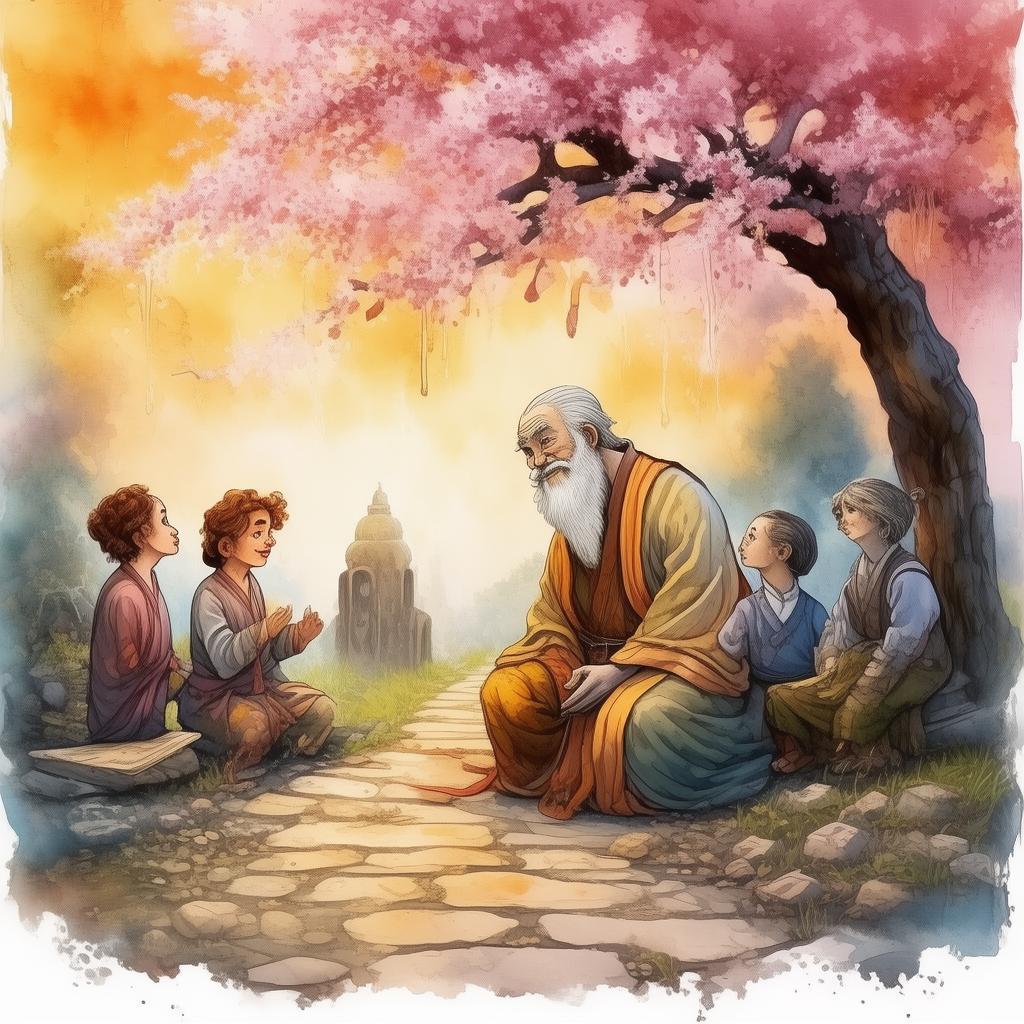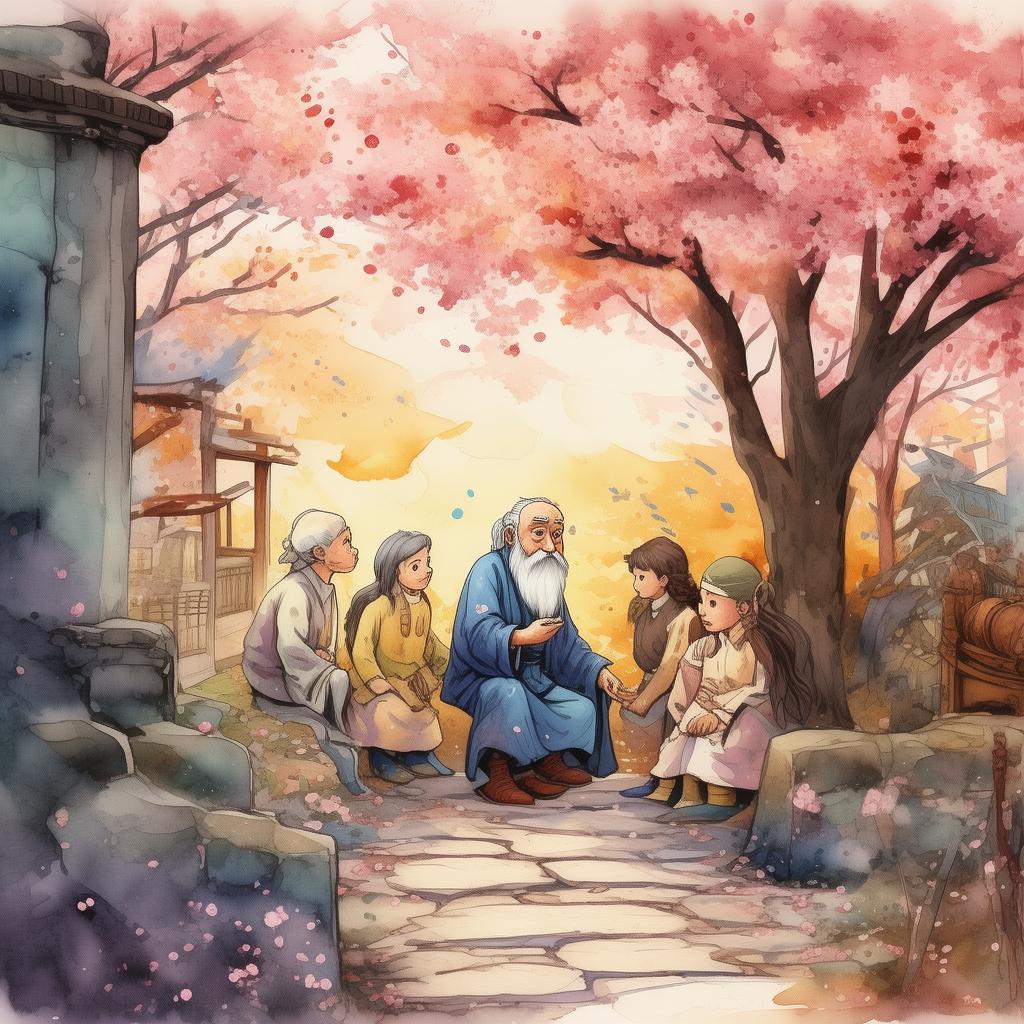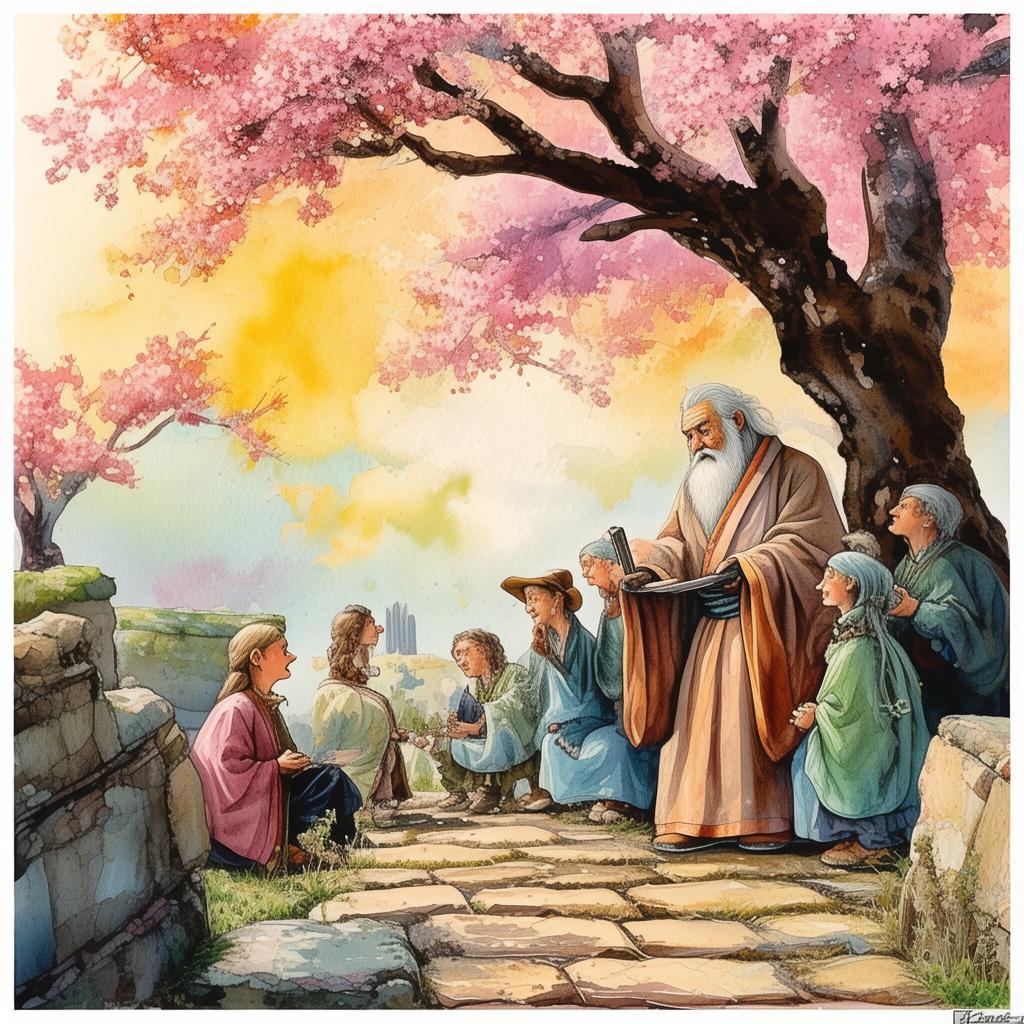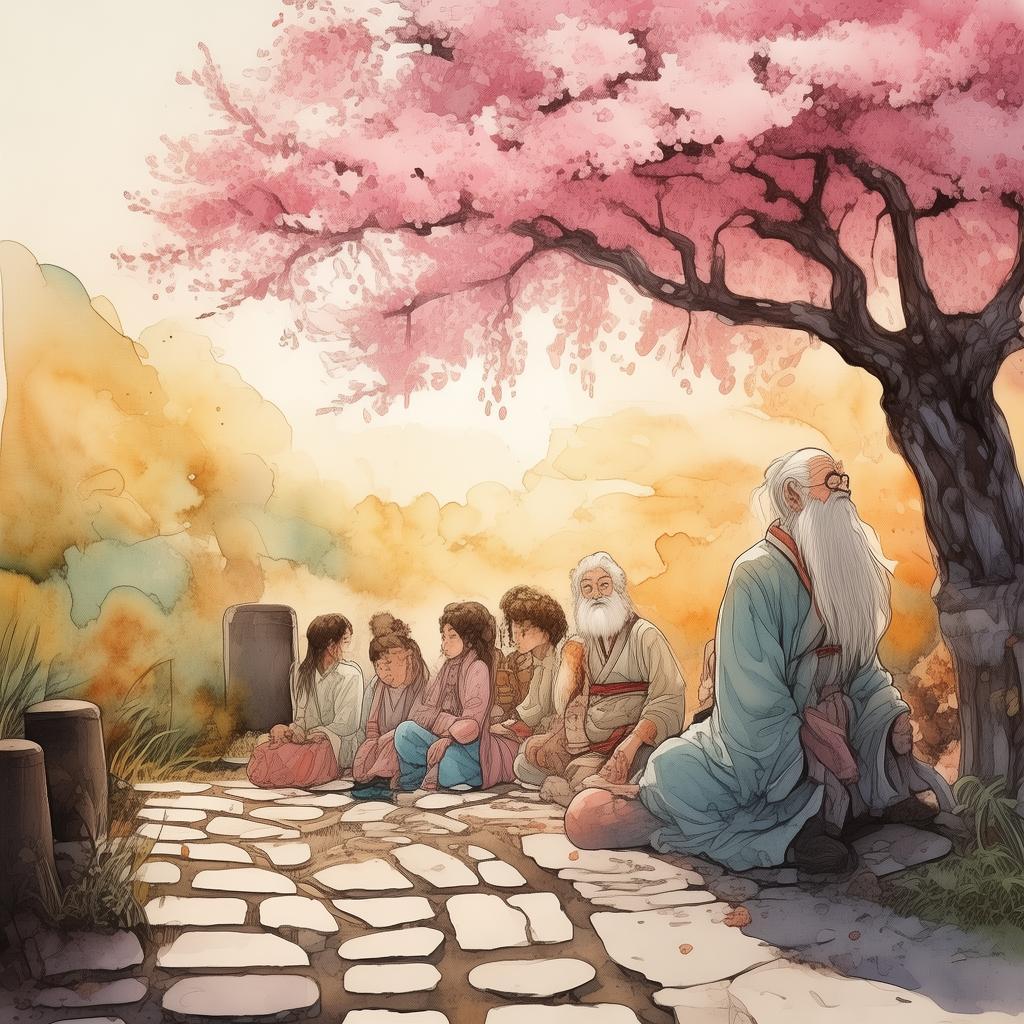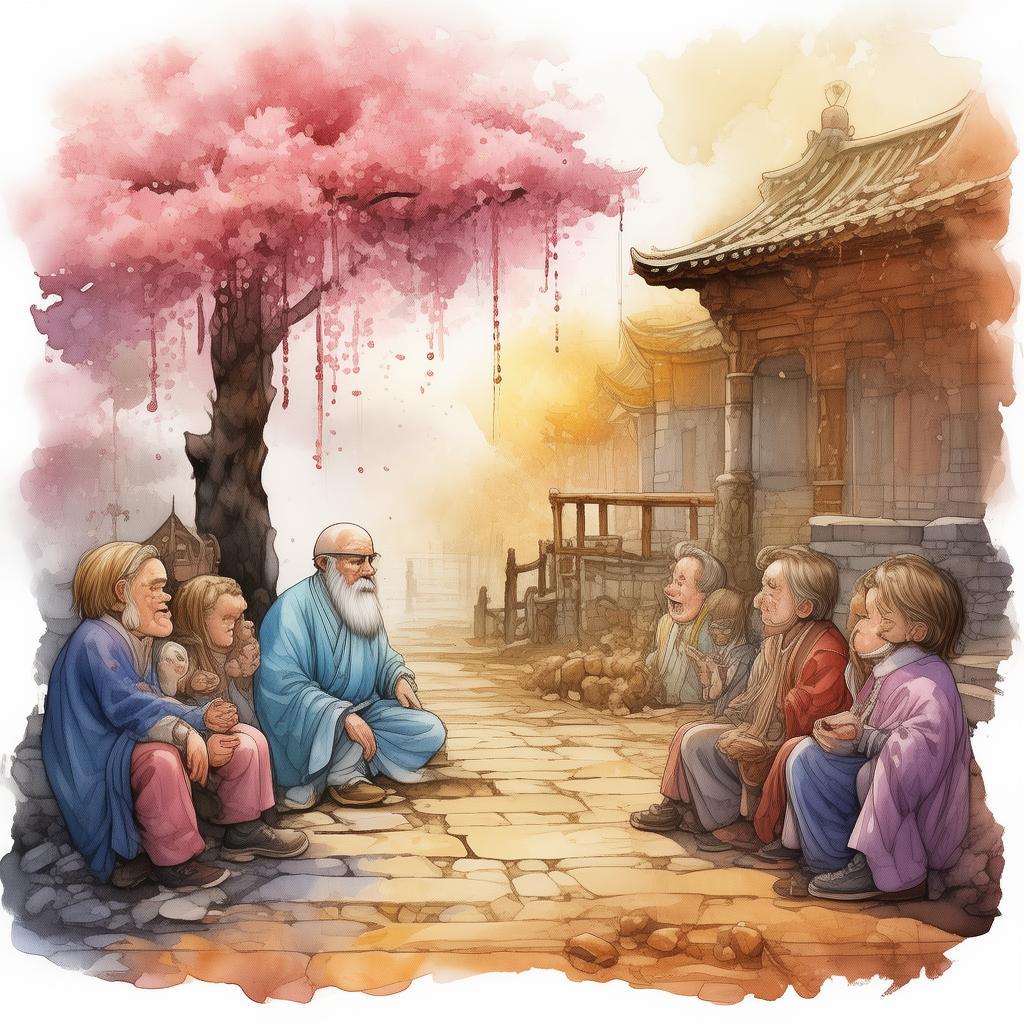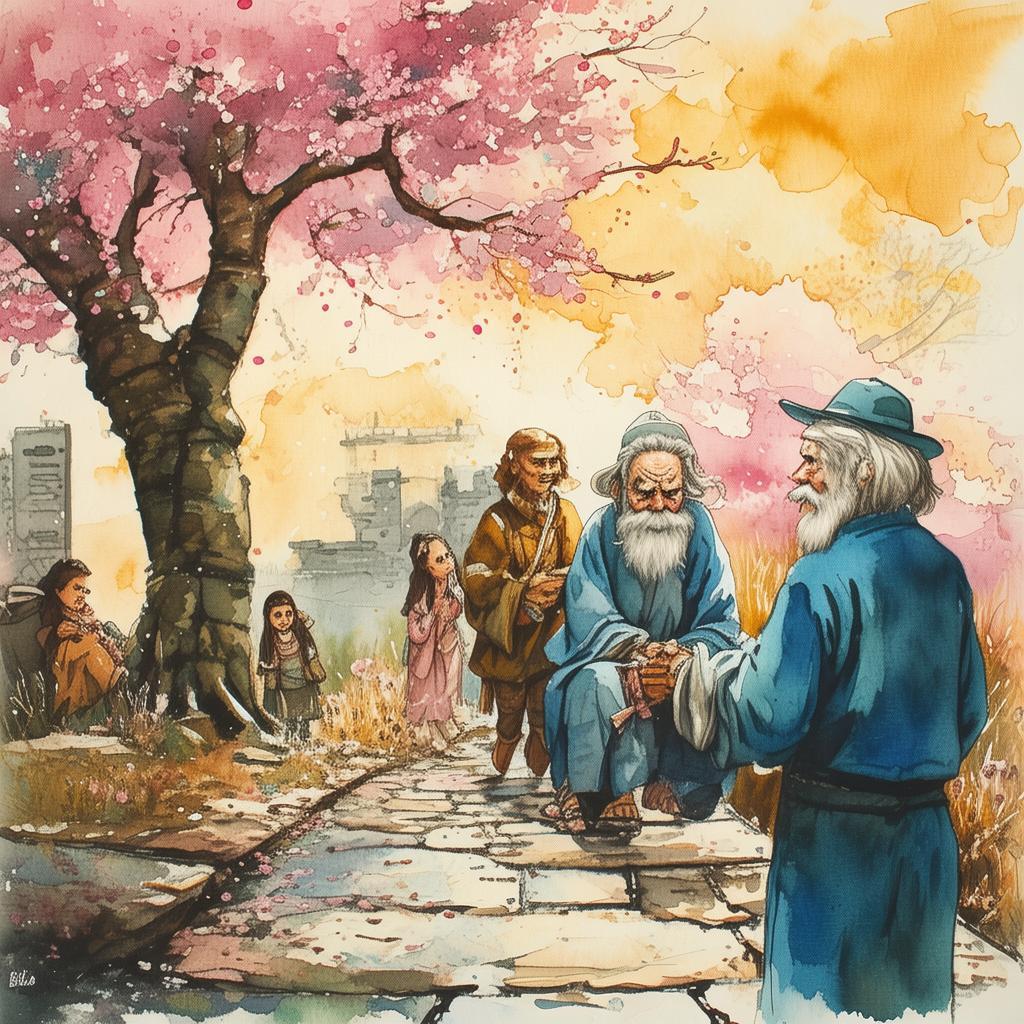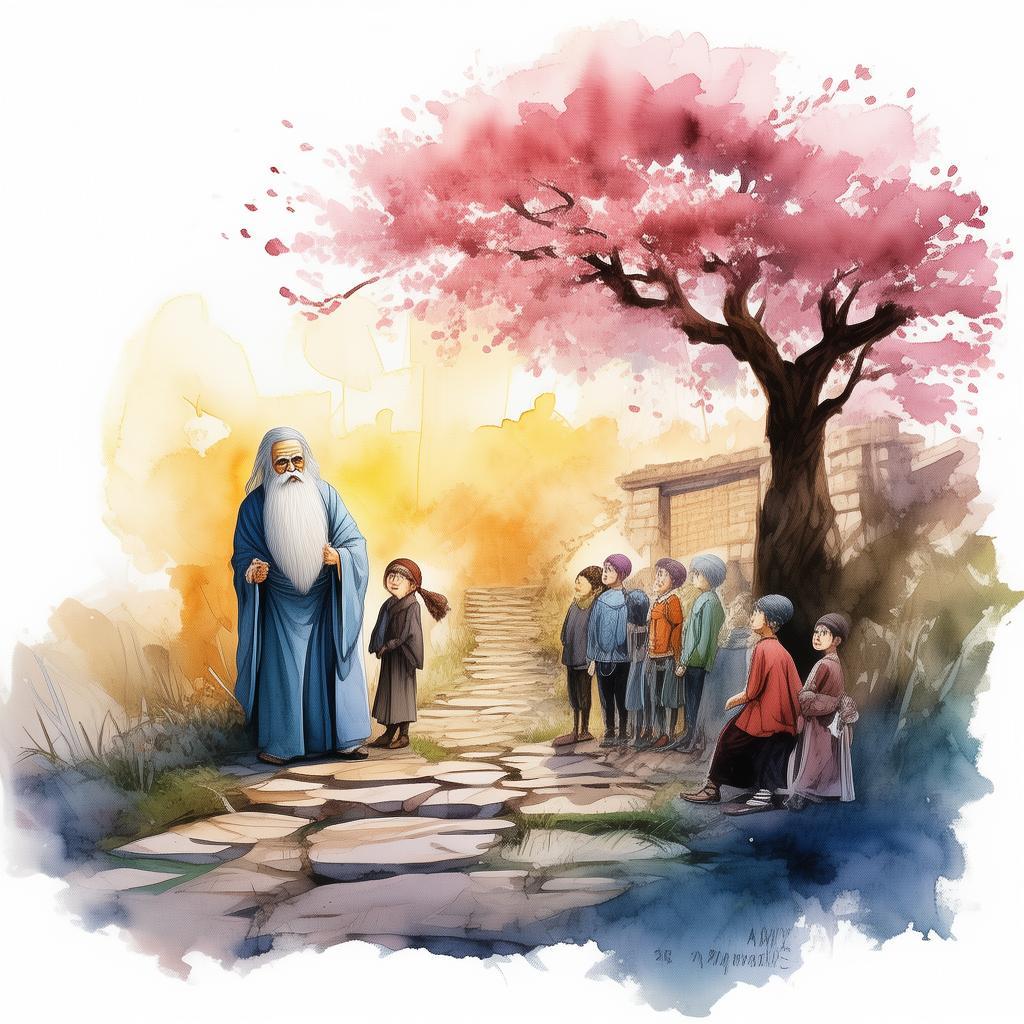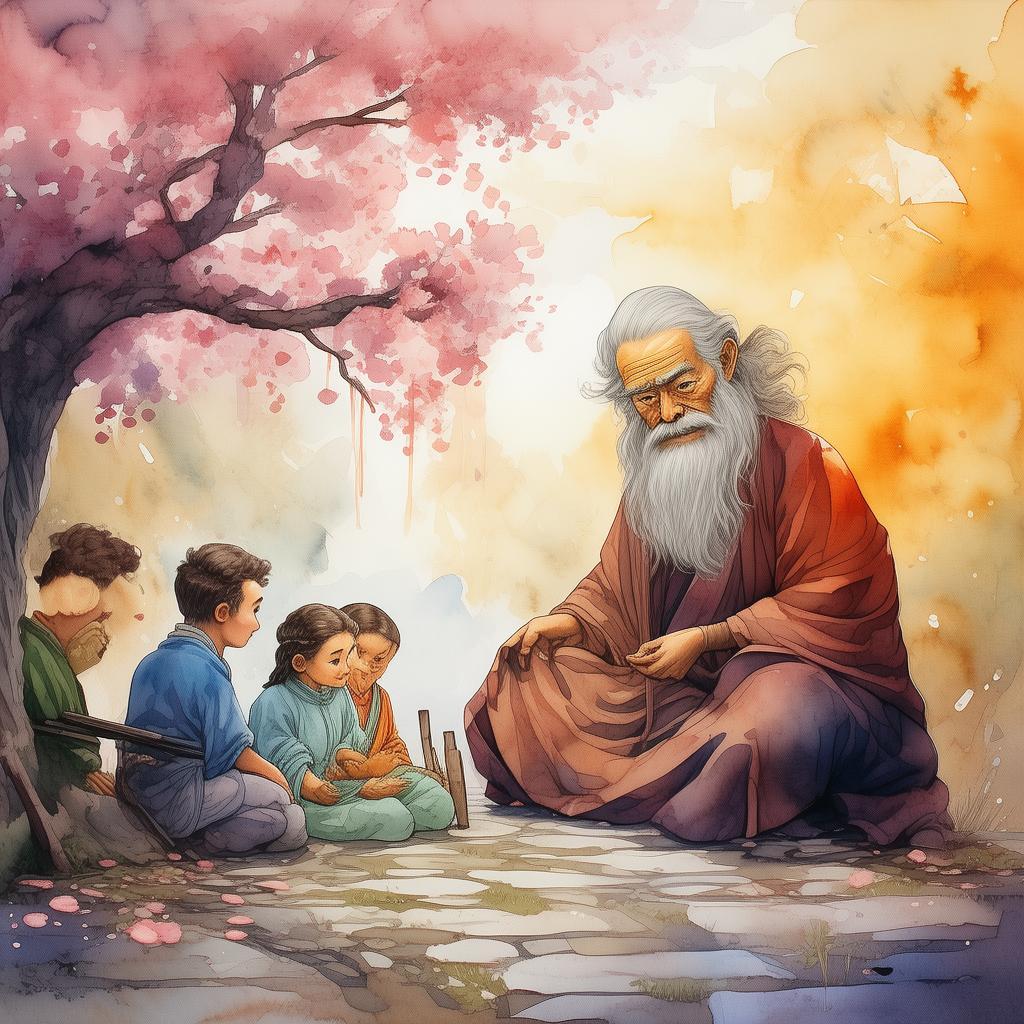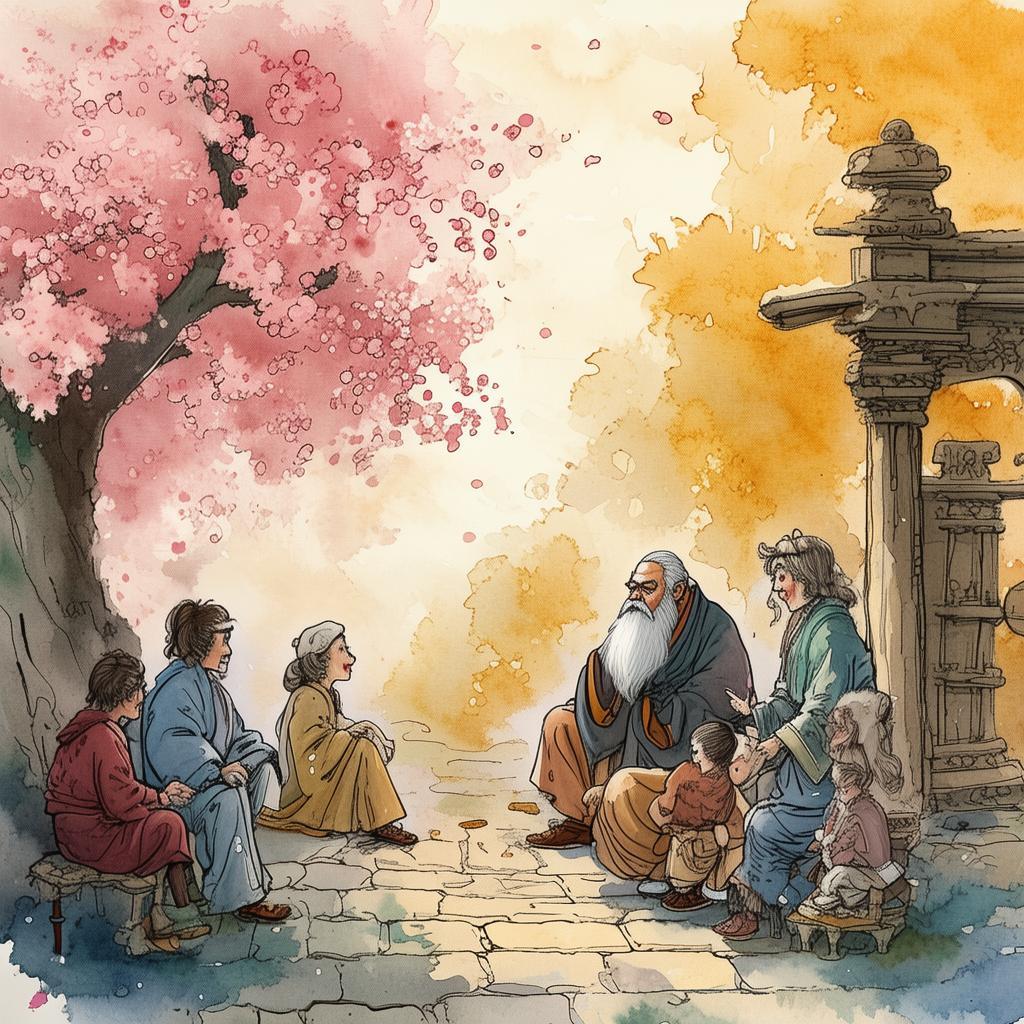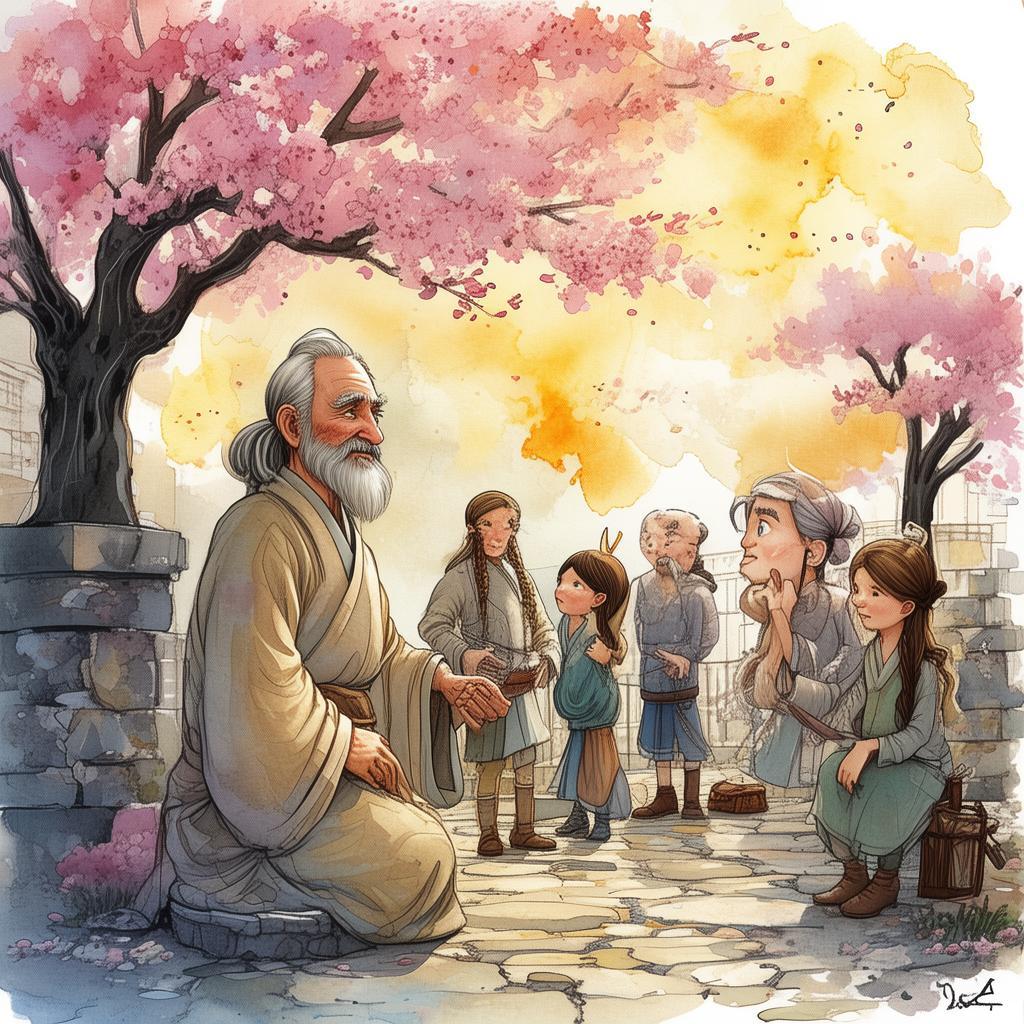Whispers of the Pen: The Lament of Yu Jin
In the bustling city of Chang'an during the Tang Dynasty, there was a young poet named Yu Jin, whose verses were as enchanting as the moonlit night. His talent was unparalleled, and his name was whispered in hushed tones throughout the land. Yet, beneath the surface of his fame lay a sorrow that only a few dared to fathom.
Yu Jin was born into a family of scholars, and from a young age, he was expected to carry on the family's legacy. However, his heart was not set on the dusty scrolls and ancient texts that filled his home. Instead, he sought inspiration in the natural world and the tales of the common folk. His poetry spoke of love, of loss, and of the fleeting nature of life—a stark contrast to the grandeur and pomposity of the courtly verse.
One day, a rival poet named Liang Chun arrived in Chang'an. Liang Chun was known for his cunning and his ability to weave words into intricate tapestries that could charm the most discerning of judges. His verses were filled with praise for the emperor and the court, and he was soon lauded as the greatest poet of the age.
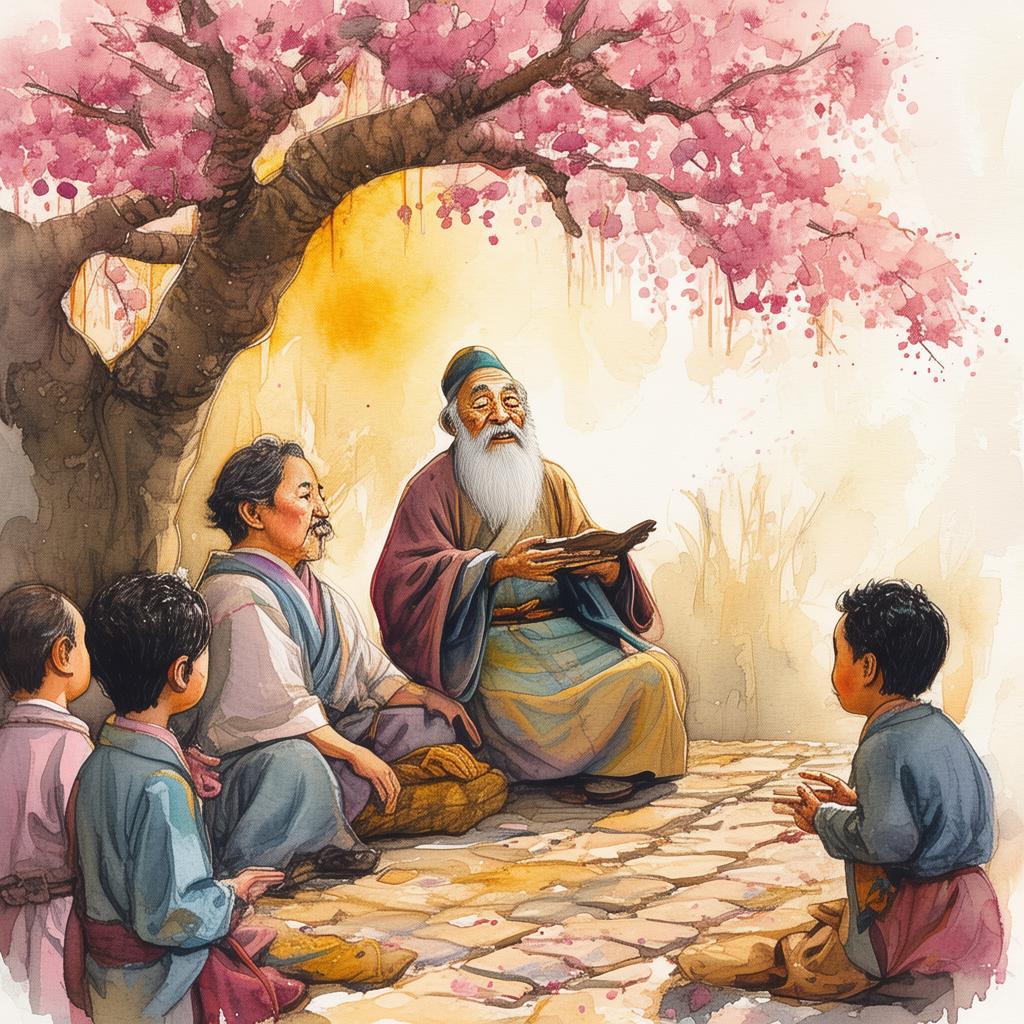
The arrival of Liang Chun was like a storm that swept through the tranquil waters of Chang'an. His verses were a stark reminder of the gulf between Yu Jin's humble aspirations and the grandeur of courtly life. Jealousy and resentment simmered in Yu Jin's heart, and he found himself vowing to surpass Liang Chun in every way.
The rivalry between the two poets soon became the talk of the town. They were often seen competing in literary contests, each striving to outdo the other. The city's populace was divided, with some cheering for Yu Jin's raw talent and others for Liang Chun's courtly elegance.
One such contest was to be held at the Great Library of Chang'an, a place of awe and reverence for scholars of all stripes. The prize was a scroll that would guarantee the winner a place in the annals of history, a title that would echo through the ages.
The day of the contest arrived, and the Great Library was filled with scholars and commoners alike. Yu Jin stood at the podium, his eyes gleaming with determination. He began to recite, his voice clear and powerful, as he painted a picture of a world that was both beautiful and tragic.
Liang Chun followed, his voice smooth and confident. He spoke of the emperor's wisdom and the prosperity of the realm, his words falling like rain upon the crowd. The audience was captivated, and the judges were torn.
As the contest reached its climax, Yu Jin recited a verse that spoke of the fleeting nature of life, a stark contrast to Liang Chun's praise of the emperor. The judges were moved, but Liang Chun's verse, filled with adulation for the court, seemed to win the day.
Disheartened, Yu Jin returned to his home, his heart heavy with sorrow. He poured himself into his writing, seeking solace in the words that had once brought him joy. Yet, the weight of his defeat and the jealousy he felt towards Liang Chun only grew heavier.
One night, as Yu Jin sat by his window, a cold breeze swept through the room. He looked up to see a figure standing in the moonlight, a figure he recognized all too well. It was Liang Chun, his rival, his nemesis.
Liang Chun approached Yu Jin, his eyes filled with malice. "You have no idea what it's like to be the best," he whispered. "You'll never understand the power that comes with it."
Yu Jin, driven by a mixture of anger and sorrow, reached for his sword. The two poets dueled, their blades clashing with a sound that echoed through the night. In the end, it was Yu Jin who fell, his lifeblood mingling with the moonlit ground.
The news of Yu Jin's tragic demise spread quickly through Chang'an. The people were shocked, and they mourned the loss of a young talent. Liang Chun, for his part, was haunted by the guilt of having driven his rival to his end.
The story of Yu Jin and Liang Chun became a cautionary tale, a warning against the dangers of jealousy and rivalry. It was said that the night of the duel, the moon had wept, and the stars had fallen from the sky, leaving a void that could never be filled.
In the end, Yu Jin's poetry remained, a testament to his talent and his sorrow. His verses continued to be recited by scholars and commoners alike, a reminder of the beauty and tragedy that can be found in the human heart. And though Liang Chun's name was known throughout the land, it was Yu Jin's legacy that would endure through the ages.
✨ Original Statement ✨
All articles published on this website (including but not limited to text, images, videos, and other content) are original or authorized for reposting and are protected by relevant laws. Without the explicit written permission of this website, no individual or organization may copy, modify, repost, or use the content for commercial purposes.
If you need to quote or cooperate, please contact this site for authorization. We reserve the right to pursue legal responsibility for any unauthorized use.
Hereby declared.
